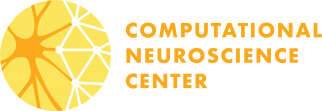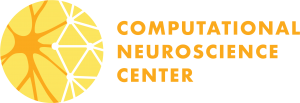The CNC’s annual Neural Computation and Engineering Connection (NCEC) meeting will be returning this week (Thursday-Friday May 5-6) with both in-person and streaming attendance opportunities. In addition to a poster session, talks from undergraduate and graduate students and postdocs, and an ethics panel discussion, keynote speakers will highlight cutting-edge research in computational neuroscience. This year’s slate of speakers will highlight their distinct methodological and theoretical approaches to questions about the dynamics of neural activity, from synapses to whole brain networks. To get ready for the event, take a look at some of the research activities and projects these speakers are involved in!
Randy McIntosh (Simon Fraser University)
Thursday 3:20-4:20pm
Talk title: Evolution of a multiscale modeling approach in neuroscience
McIntosh’s research program emphasizes the large-scale, multi-area interactions across the whole brain that give rise to humans’ cognitive abilities. He is the Project Leader for The Virtual Brain (TVB), an open-source whole brain modeling tool. TVB uses freely available or user-provided structural imaging data (diffusion tensor imaging and diffusion spectrum imaging) of the whole brain to generate a model of neural activity that can be “measured” using common noninvasive electrophysiology and neuroimaging techniques and compared to experimental data. McIntosh’s research utilizes TVB to pursue goals of developing network-level biomarkers for and understanding the physiological bases of neurodegenerative diseases, as well as understanding individuals’ unique processing pathways by correlating complex behavioral and physiological time series data.
Kanaka Rajan (Mount Sinai School of Medicine)
Friday 9:30-10:30am
Talk title: Curriculum learning as a tool to probe learning rules in artificial and biological brains
Rajan is a computational neuroscientist interested in using tools from both neuroscience and AI to develop integrative theories of brain function, addressing questions about how processing across the brain at many scales gives rise to complex cognitive functions. Her group uses flexible neural network models as well as experimental data and emphasizes the importance of strong theoretical underpinning in both model development and experimental design. She is interested in the ways that a limited number of neurons and circuits, activating at a very fast synaptic time scale, give rise to a wide variety of slow, complex cognitive processes like learning and remembering. By developing models that rely on biophysical inputs measured at synapses, she hopes to be able to discover generalizable principles at the circuit level that contribute to cognition.
Anitha Pasupathy (University of Washington Department of Biological Structure)
Friday 10:30-11:00am
Talk title: Dissecting visual-frontal cortical interactions during perceptual behavior
CNC faculty member Pasupathy’s lab investigates circuit-level neural processing associated with visual processing in nonhuman primates. She uses multiple methodologies – including single cell electrophysiology and behavioral techniques as well as computational modeling-driven approaches – to probe neural activity involved in representing and recognizing shapes. Her group’s experiments and modeling focus on activity within V4 (an intermediate area in shape processing pathways), as well as its interactions with other cortical areas. Recent work has investigated how these circuits represent shape and texture, as well as the ways they are involved in the recognition and representation of partially occluded shape, a skill that is highly developed in primates.
Marina Garrett (Allen Institute for Brain Science)
Friday 11:40am-12:10pm
Talk title: Novelty has diverse effects on coding by cortical disinhibitory circuits
Garrett, an Assistant Investigator in Shawn Olsen’s group at the Allen Institute, is interested in how context and cognitive states influence neural activity across the brain. She uses in vivo 2-photon imaging in awake mice performing a visual discrimination task to probe the relationships between behavioral performance and neural activity, and probes how the representation of stimuli changes as the mice gain experience.
Julie Harris (Cajal Neuroscience)
Friday 1:10-2:10pm
Talk title: Drug discovery based on neuroanatomical insights
Former UW faculty and Allen Institute Researcher Harris is now the Vice President of Preclinical Biology at local biotech startup Cajal Neuroscience. Cajal Neuroscience, named for Nobel Laureate Santiago Ramón y Cajal, is a drug discovery company interested in neurodegenerative diseases such as Alzheimer’s and Parkinson’s Diseases.
Edgar Walker (University of Washington Department of Physiology and Biophysics)
Friday 3:30-4:00pm
Talk title: Probing the sensory representation in the visual cortex with deep learning models
Walker recently began at UW as a new faculty member in the CNC. His research interest is population-level neural representation of visual stimuli and the computations performed on these representations, as well as the role of uncertainty in these processes. Trained in nonhuman primate neurophysiology as well as cutting-edge AI methodologies, he aims to combine experimental and modeling data to test theories of perceptual encoding and uncertainty, helping to untangle the computational underpinnings of these complex behaviors.
Karel Svoboda (Allen Institute for Brain Science) Friday 4:00-5:00pm Talk title: Brain-wide and cell type-specific analysis of neural dynamics
Svoboda is executive director of the new Allen Institute for Neural Dynamics, as well as a Vice President of the Allen Institute for Brain Science. His interest and expertise in circuit-level, whole brain analysis of neural dynamics during cognitive activity will help to steer the Allen Institute for Neural Dynamics towards its goal of exploring how brain activity – from the level of single neurons to networks spanning the whole brain – gives rise to complex cognitive behaviors. He has pioneered techniques in neuroimaging and microscopy, and is a founder of Neurodata Without Borders (NWB), a group dedicated to increasing the accessibility of neuroscience data internationally. NWB is working towards developing databases of uniformly-formatted, open-access electrophysiological data to allow neuroscientists everywhere to perform analyses across datasets, accelerating the pace of discovery in the field.
The full schedule of events, including the six plenary speakers highlighted here, is available on the CNC website. Please contact Jessica Huszar (huszarjm@uw.edu) for more information.


